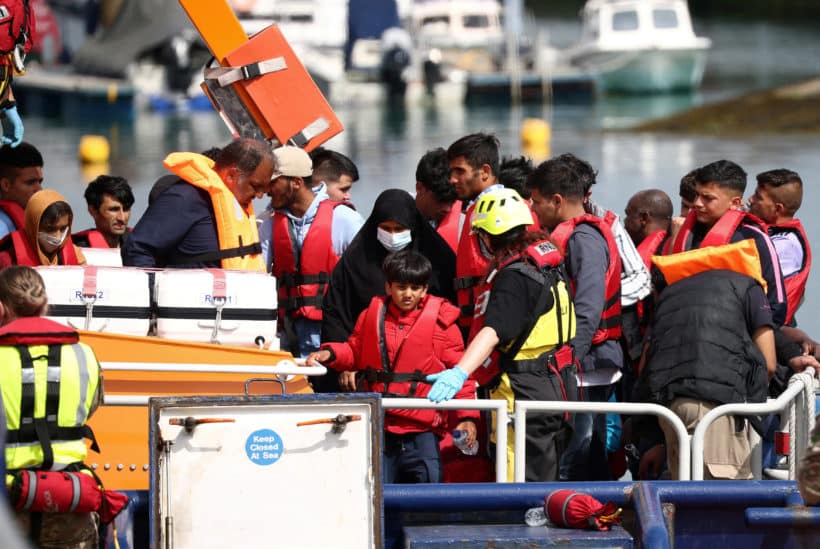
LONDON, Dec 19 (Reuters) – Judges at London’s High Court will rule on Monday whether the British government’s plan to send asylum seekers to Rwanda is legal, as Prime Minister Rishi Sunak stakes his future on stopping a record number of migrant arrivals in small boats.
Under a deal struck in April, Britain aims to send tens of thousands of migrants who arrive on its shores illegally more than 4,000 miles (6,4000 km) to Rwanda.
The first planned deportation flight was blocked in June by a last-minute injunction from the European Court of Human Rights (ECHR) and the strategy’s lawfulness was subsequently challenged by a judicial review at London’s High Court.
Judges Jonathan Swift and Clive Lewis are expected to deliver their verdict at 1030 GMT.
A victory for the government on Monday will not mean that flights can take off straight away because there may be a further appeal in the British courts and the ECHR injunction imposed during the summer prevents any immediate deportations until the conclusion of legal action in the United Kingdom.
In one of his first major policy announcements, Sunak set out a strategy to clamp down on illegal immigration and said he wanted to restart the flights to Rwanda despite opposition from lawmakers in all the main political parties, the United Nations and even King Charles.
The prime minister is under growing pressure from his own members of parliament and the public to deal with the arrivals, with figures showing more than 40,000 – a record number – have arrived from France this year, many having made the journey from Afghanistan or Iran or other countries suffering war to travel across Europe and on to Britain to seek asylum.
Immigration has risen up voters’ priorities to become the third most important issue facing the country after the economy and health, polls show.
The deaths of four migrants in the Channel this week when their dinghy began sinking was the latest in a series of tragedies in the water between Britain and France that have underscored the government’s inability to stop the crossings.
INHUMANE, NOT WORKING
Lawyers acting for asylum seekers from countries including Syria, Sudan, and Iraq, as well as charities and Border Force staff told the High Court in hearings this year that the government’s Rwanda policy was inhumane and does not comply with human rights conventions.
They said that Rwanda, whose own human rights record is under scrutiny, does not have the capacity to process the claims, and there is a risk some migrants could be returned to countries from which they had fled, citing concern raised by government officials themselves.
Britain says the Rwanda deportation strategy will help deter migrants from making the perilous trip across the Channel, and will smash the business model of people-smuggling networks.
Supporters of the Rwanda deal say that sending migrants to the country will reduce overcrowding in processing centers and give genuine refugees a home.
However, since the policy was announced tens of thousands people have continued to arrive in Britain and until recently Rwanda had only set up one hostel to accept UK arrivals, with capacity for about 100 people, representing 0.35% of all the migrants who arrived in Britain on the small boats last year.
The strategy is based loosely on Australia’s programme of sending migrants to Papua New Guinea and Nauru for processing.
Under the agreement with Rwanda, anyone judged to have entered Britain illegally is eligible for deportation, with the exception of unaccompanied minors.
Deportees granted protection by Rwanda’s government would be eligible to live there but would not be permitted to return to Britain.
(Reporting by Andrew MacAskill; Editing by Angus MacSwan)

